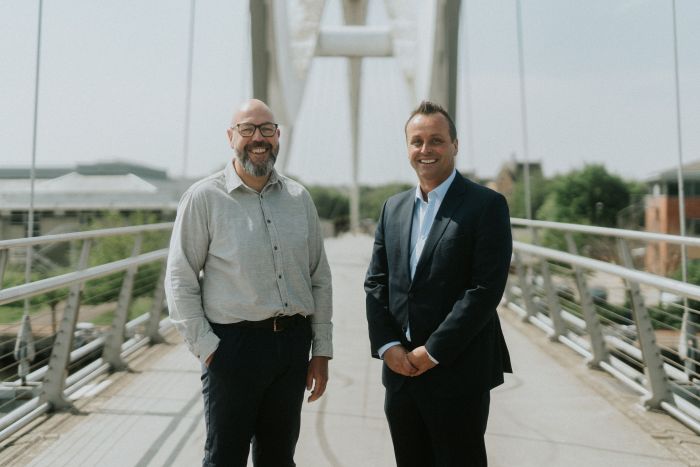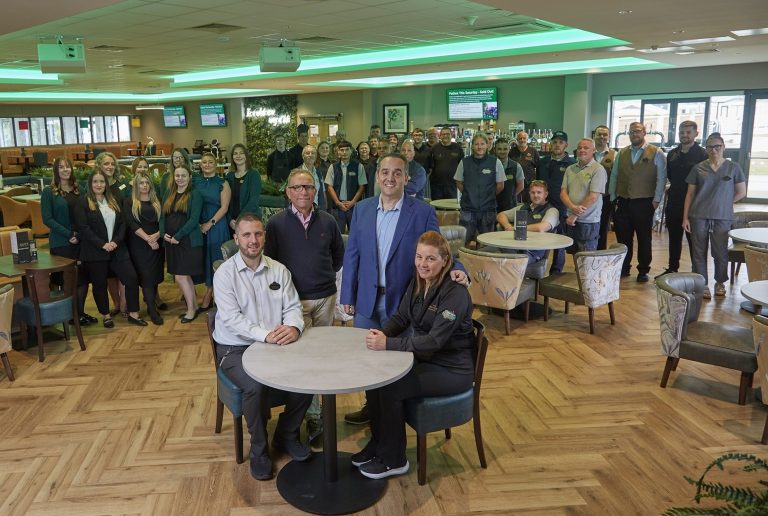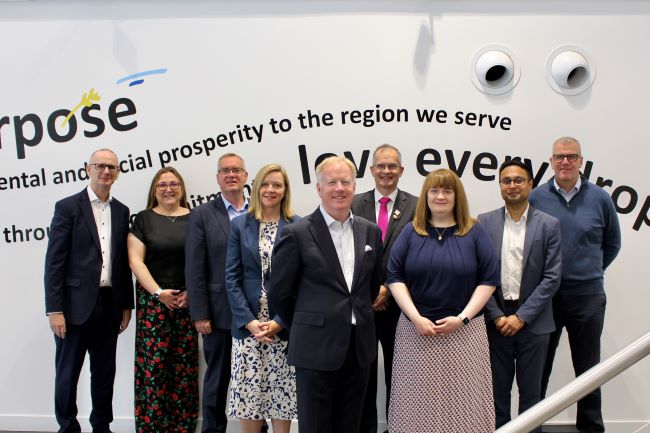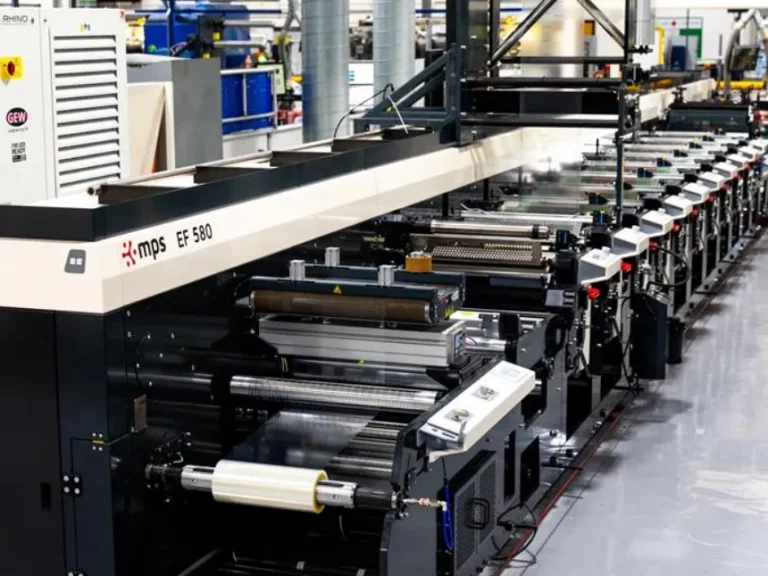Leeds law firm merges with Teesside’s The Endeavour Partnership
Yorkshire holiday park unveils £4.1m transformation following devastating fire
FirstGroup acquires Leeds-based coach and bus operator
AtkinsRéalis secures £1 billion deal to support Anglian Water’s £11 billion investment programme
AtkinsRéalis has been appointed Programme Delivery Partner (PDP) by Anglian Water Services as part of a joint venture with Mace and Turner & Townsend. The collaboration will help deliver Anglian Water’s £11 billion capital investment plan, which spans from April 2023 to 2030, marking the beginning of the largest business plan in the company’s history.
The £1 billion agreement extends through to 2040 and covers a comprehensive range of major infrastructure projects, including the construction of two new reservoirs in the Fens and Lincolnshire. This partnership represents one of the largest contracts of its kind within the water industry and provides an opportunity to support Anglian Water’s significant infrastructure transformation.
As Programme Delivery Partner, AtkinsRéalis, alongside its joint venture partners, will assist in managing the full capital investment programme, focusing on efficient, collaborative delivery to meet the needs of Anglian Water’s customers and environmental goals. The companies aim to drive innovation and record levels of investment to secure a reliable, resilient water supply for millions of customers across the region.
Coveris invests £1m to boost capacity at its linerless labelling centre
Coveris has committed an additional £1 million to its Linerless Labelling Centre of Excellence in Spalding, UK, bringing the total investment at the site to £2.5 million. The company is focused on expanding its linerless labelling capabilities, which have grown significantly since the programme’s launch in late 2022.
The Spalding facility is the only dedicated linerless label manufacturing site in the UK, producing over a billion labels annually for the UK and European FMCG sectors. This latest investment has funded the installation of a new ten-colour MPS flexographic press, which went live in June 2025. The press, capable of printing on both paper and filmic substrates, will help meet increasing demand in markets like ready meals and food-on-the-go.
This new equipment supports Coveris’ commitment to sustainable labelling by reducing waste and enabling faster set-up times. It also offers 100% web inspection to enhance quality and cold foil embellishment for high-impact finishes. The investment is designed to meet growing demand for sustainable packaging solutions across various applications, including Slidewrap and punnet labels.
Cura Terrae swoops for Scottish environmental consultancy
Aldi boosts renewable energy in Yorkshire with solar panel rollout
Aldi is investing £7.7 million in its renewable energy programme, with a significant focus on its Yorkshire stores. As part of this investment, solar panels will be installed at several locations, including Todmorden, Selby, Askern, Goldthorpe, and Ecclesfield. The initiative will see 41 stores across the UK, including those in Yorkshire, equipped with advanced 144 kWp solar systems by the end of 2025, with an additional 49 stores set to follow in 2026.
The new installations are expected to generate an average of 100,000 kWh annually per store, helping Aldi increase its use of on-site renewable energy. This move aligns with the supermarket’s strategy to enhance its energy resilience and reduce its carbon footprint. Additionally, new Aldi stores will be fitted with solar systems as part of the company’s ongoing store openings programme, further solidifying its commitment to sustainability.
£200 million regeneration project begins in Middlesbrough
Work has started on a £200 million regeneration project in the heart of Middlesbrough. The Crown Square development is set to revitalise a previously derelict site in the Gresham area, with plans to include a new Fairfield by Marriott hotel, student accommodation, and housing for young professionals.
Lead contractor Wates has begun phase one of the project, which includes preparatory groundworks and the installation of hoardings. This initial phase will also deliver build-to-rent properties and one of the first Fairfield by Marriott hotels in the UK.
The development is a collaboration between iMpeC, Buccleuch Property, and the Middlesbrough Development Corporation. The plan aims to create 1,500 new homes and 4,000 jobs, designed to attract and retain local talent.
The regeneration project represents the town’s largest development in generations. Additional works include scaffolding The Crown building and reopening the adjacent footpath for pedestrians. The Development Corporation Board will make decisions regarding The Crown building’s future.
Small businesses adopting AI to drive growth and efficiency
A growing number of small businesses in the UK are integrating artificial intelligence (AI) tools into their operations, with 62% now using the technology to enhance efficiency. The shift is largely driven by a strong demand for AI skills training, particularly in marketing, operations, and customer service.
A recent initiative by BT and Small Business Britain introduced an ‘AI for Small Business’ training programme, helping bridge the skills gap for 500 small business owners. The programme offered expert-led webinars and a follow-up course on AI tools, aimed at enabling entrepreneurs to leverage AI for greater efficiency. The course highlighted how small businesses can utilise AI for tasks such as content creation, data analysis, and automation, even without prior technical expertise.
Business owners are increasingly recognising the need for hands-on support, with over half (51%) reporting that they need assistance to effectively implement AI. The training programme is designed to give practical advice on integrating AI into business operations, helping companies focus on growth and innovation.
AI tools are becoming a key asset for small businesses, not just in improving day-to-day operations, but also in helping them stay competitive in a rapidly evolving market.
Leeds South Bank regeneration reaches new milestone with Central Park opening
A new 1.5-acre public park has opened as part of the ongoing transformation of Leeds’ South Bank area. Central Park is a key component of the larger Aire Park regeneration project, which is set to create over 1,350 homes and eight acres of green space, alongside retail and commercial facilities.
Once fully developed, the project will offer a variety of spaces, including play areas, woodland, and event venues for markets and performances. The overall vision aims to make the South Bank area a vibrant location for both work and leisure.
The Aire Park initiative also includes plans for further green spaces, including an expansion behind the Tetley building and additional parkland south of Crown Point Road. Developers are set to introduce 700 new trees and over 100 plant species, with the project expected to reach completion by 2030.
With contributions from design firms such as Planit Leeds and Palmers, the project has been lauded for its potential to revitalise a previously industrial area into a green hub for the city. As work progresses, the development has already seen commercial tenants take occupancy, and the creation of community-focused spaces is expected to make Aire Park a key destination in the city.












